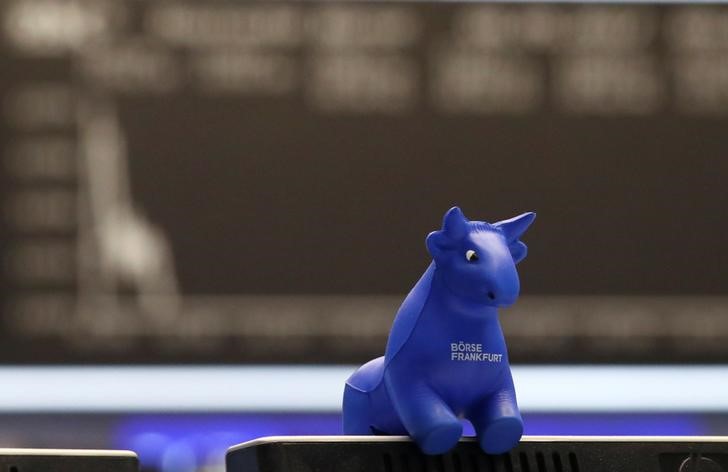By Peter Nurse
Investing.com - European stock markets are expected to open sharply lower Thursday as persistent U.S. inflation raised fears of aggressive monetary tightening, hitting growth in the world’s largest economy.
At 2:05 AM ET (0605 GMT), the DAX futures contract in Germany traded 1.8% lower, CAC 40 futures in France dropped 2.1%, and the FTSE 100 futures contract in the U.K. fell 1.4%.
European investors will digest Thursday the latest inflation data out of the U.S., as headline U.S. consumer prices rose 8.3% for the 12 months to April. While that was slower than the 8.5% pace of a month earlier, it was also higher than market forecasts for 8.1%.
The data created doubt over whether the inflation cycle had turned, remaining very close to last month’s 40-year high, prompting renewed fears about the extent of the economic damage created by the aggressive interest rate hikes needed to tame it.
Potential weakness in the world’s economic driver adds to the deteriorating global picture, as war in Ukraine threatens an energy crisis in Europe and ongoing COVID lockdowns in China hit the growth potential of the world’s second largest economy.
Evidence of the economic slowdown in Europe emerged earlier Thursday with the release of the preliminary first quarter GDP data from the U.K. Although the economy expanded by 0.8% in the first quarter, this was weaker than expected and the monthly reading for March actually dropped 0.1%.
The quarterly corporate results season continues in Europe, with Merck KGaA (ETR:MRCG) expecting earnings growth of up to 9% this year as the German chemicals company’s laboratory gear business benefits from drugmakers' efforts to explore new biotechnologies.
Numbers from the likes of Veolia Environnement (EPA:VIE), Bouygues (EPA:BOUY), Aegon (NYSE:AEG), Allianz (ETR:ALVG), Commerzbank (ETR:CBKG), RWE (ETR:RWEG), Siemens (ETR:SIEGn) and Zurich Insurance (SIX:ZURN) will also be studied carefully.
Oil prices slipped lower Thursday, handing back some of the previous session’s sharp gains with traders focusing once more on a cocktail of concerns, including global recession fears, the strongest U.S. dollar in two decades, and prolonged COVID-19 lockdowns in China, the world's top crude importer.
The market rose around 5% on Wednesday after Russia placed sanctions on some European gas companies, responding to the punishments imposed on Moscow for its invasion of Ukraine in February.
By 2:05 AM ET, U.S. crude futures traded 1.4% lower at $104.23 a barrel, while the Brent contract fell 1.3% to $106.15.
Additionally, gold futures fell 0.3% to $1,848.43/oz, while EUR/USD traded 0.1% lower at 1.0499.
